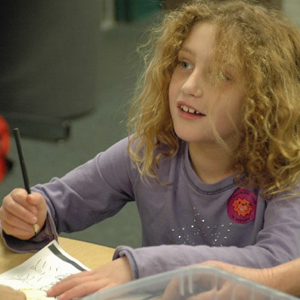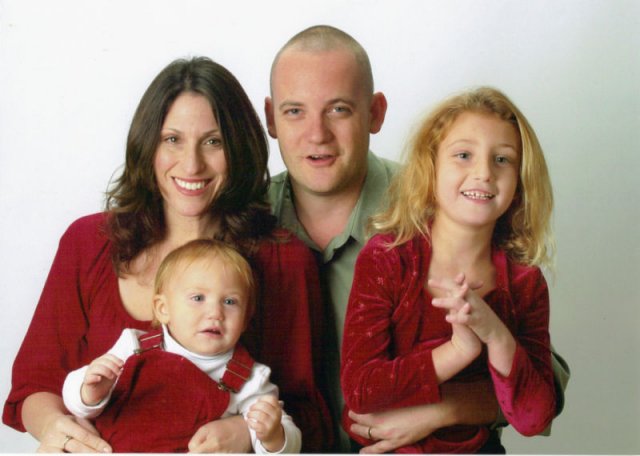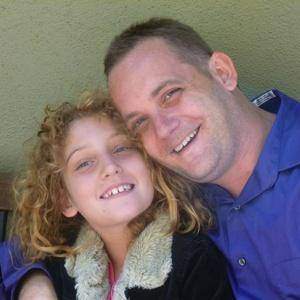Jani Schofield diagnosed with early onset schizophrenia at age 6
Jani Schofield diagnosed with early onset schizophrenia at age 6
Michael and Susan Schofield are the parents of Jani Schofield, who was diagnosed with early onset schizophrenia. Michael Schofield has written a book that details their accounts of living with their beautiful daughter January Schofield, who is referred to as Jani and also Janni.
The book is called January First, A Child’s Descent into Madness and Her father’s Struggle to Save Her.
The story of Jani Schofield, who is now 9 years old is sad, compelling, amazing and at the same time very interesting because it is very uncommon to have a child diagnosed with early onset schizophrenia at such a young age.
At the tender age of 6, Jani was officially diagnosed with what some experts have called one of the most extreme cases they have ever seen of early onset schizophrenia.Although January, Jani for short, received that diagnosis at age 6, problems began to surface long before.
As a baby, Jani cried continuously and rarely slept. She would only sleep for 20 minutes at a time and her parents would try to find ways to amuse her and keep her active.
In an interview with the New York Post, Jani’s father recalls that when she turned 3, she began to have imaginary friends; a dog, a cat and even an entire imaginary island.
Her parents may have initially attributed some of their daughter’s strange behavior to her genius-level intelligence since they claim, at age 2, she already had an IQ of 146.
By age 4, she could even perform complex math in her head.
Other children, not affected by early onset schizophrenia, sometimes go through “phases’ where they have imaginary friends but, in Jani’s case, it was not a phase.
It was the beginnings of childhood early onset schizophrenia manifesting.
Early onset schizophrenia is rare
Although schizophrenia affects approximately 1% of the total population, according to the National Institute of Mental Health, early onset schizophrenia accounts for a very small percentage of the cases.
Estimates vary and most report that for the 1 in 100 adults that have schizophrenia, 1 in 100 of those affected are estimated to have developed early onset schizophrenia.
The risk of being affected with schizophrenia increases if a parent has it and, in those case, the risk rises to 10%.
When Jani was 4, her parents had another child, a boy named Bodhi.
Instead of it being a happy occasion, violence directed toward Bodhi, extreme violence, eventually caused the parents Michael and Susan to move into 2 apartments so they could keep the children separated and protect Bodhi while still caring for Jani.
The frightening “episode” that erupted in extreme violence happened only 3 days after Bodhi was born.
Jani threw something at her brother because he would not stop crying. She missed hitting her brother and, apparently enraged, Jani attacked her mother, who was holding Bodhi.
Michael jumped in to contain his daughter and was punched in the head, had the wind knocked out of him and his daughter was biting him.
That episode was a life changing moment for the Schofield’s.
Jani has been in and out of hospitals receiving psychiatric care and received different diagnosis’. Some said it was ADHD and another thought that Jani was suffering from extreme anxiety.
When she was in first grade, the school wanted her removed from school due to her behavior. She reportedly tried to throw herself out of a window. Her father refused to remove her. Police were called by school authorities and they in turn called in a psychiatric team to evaluate Jani.
Jani was evaluated at UCLA and that is when they received the official diagnosis of the very rare early onset schizophrenia.
Her parents did not and do not want to institutionalize her and are committed to making it work.
It hasn’t been an easy road and Jani has been hospitalized close to 20 times since being diagnosed. Her father even made a suicide attempt.
The family is living together again and taking it one day at a time.
Jani takes numerous medications to help control her episodes.
Regarding her medications, her father says in an interview,
We’ve come to understand what her baseline is — she’s always a little bit psychotic — and she hallucinates about 95 percent of the time. We work with the baseline, but when it escalates to the point where she’s a danger to herself or to Bodhi we try to hospitalize as a preventative measure, to prevent her psychosis from getting worse. She has so many hallucinations. When the medications work against one set, another set emerges to take its place. It’s like fighting an insurgency.
The family in addition to their struggles with Jani, is now having some problems with their 4 year old son Bodhi. He throws temper tantrums, was diagnosed as having autism and there might be a chance that he too has early onset schizophrenia.
Unfortunately, children who develop schizophrenia in childhood have much more difficulty since they have not yet acquired “normal” development skills or life experiences.
ABC news reports that Dr. Dost Ongur, the clinical director of the Psychiatric Disorders Division at McLean Hospital in Boston said,
Schizophrenia leads people to live very limited lives. In general, the prognosis for schizophrenia is poor.
It seems that help can be hard to find. Michael Schofield acknowledged this when he said,
The most surprising thing is the complete lack of services that exist. The Department of Mental Health wants to ship Jani to an out of state facility and no local facilities will take her because she’s too psychotic. Throughout our journey all the services we thought must exist won’t help us.
For more information on Jani, visit the Jani’s Journey website created by her father.
If you or someone you know want more information about early onset schizophrenia or adult schizophrenia, here are some resources;
National Institute for Mental Health
Facebook Support Group for Parents of special needs children
Schizophrenia.com for Information, Education and Support
Related articles








 Follow
Follow

